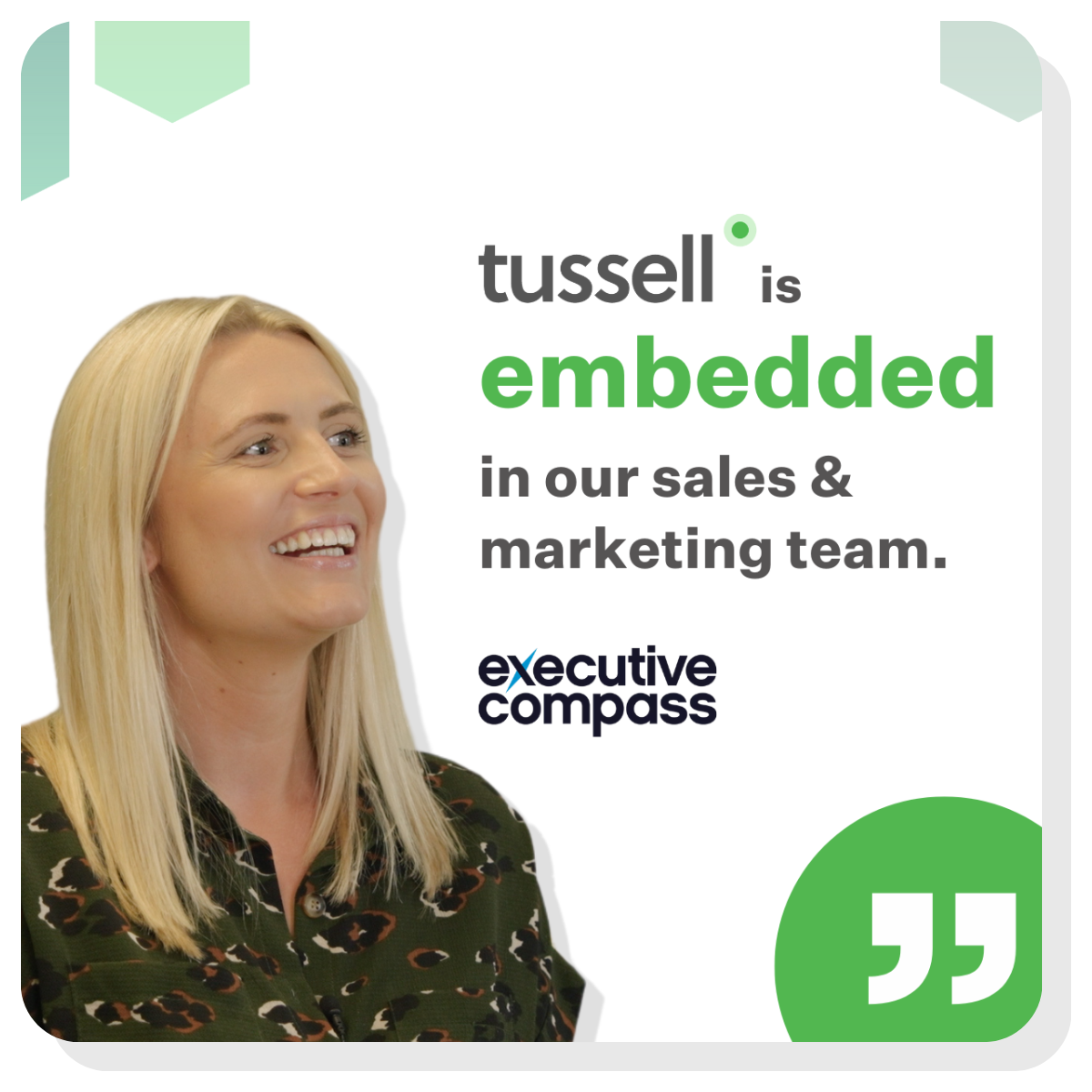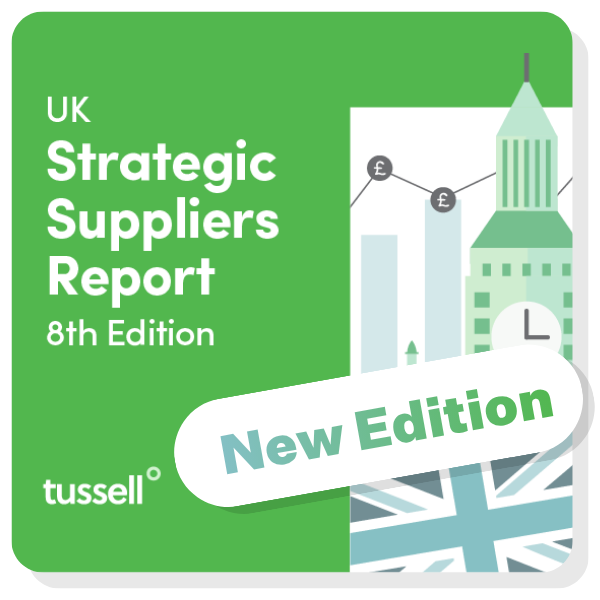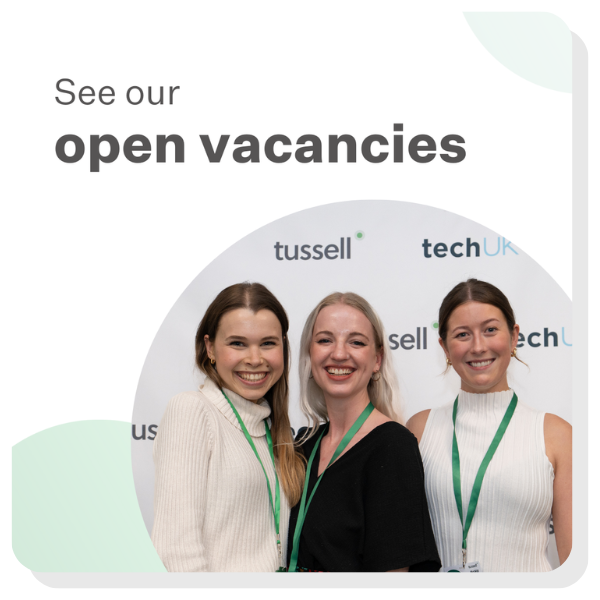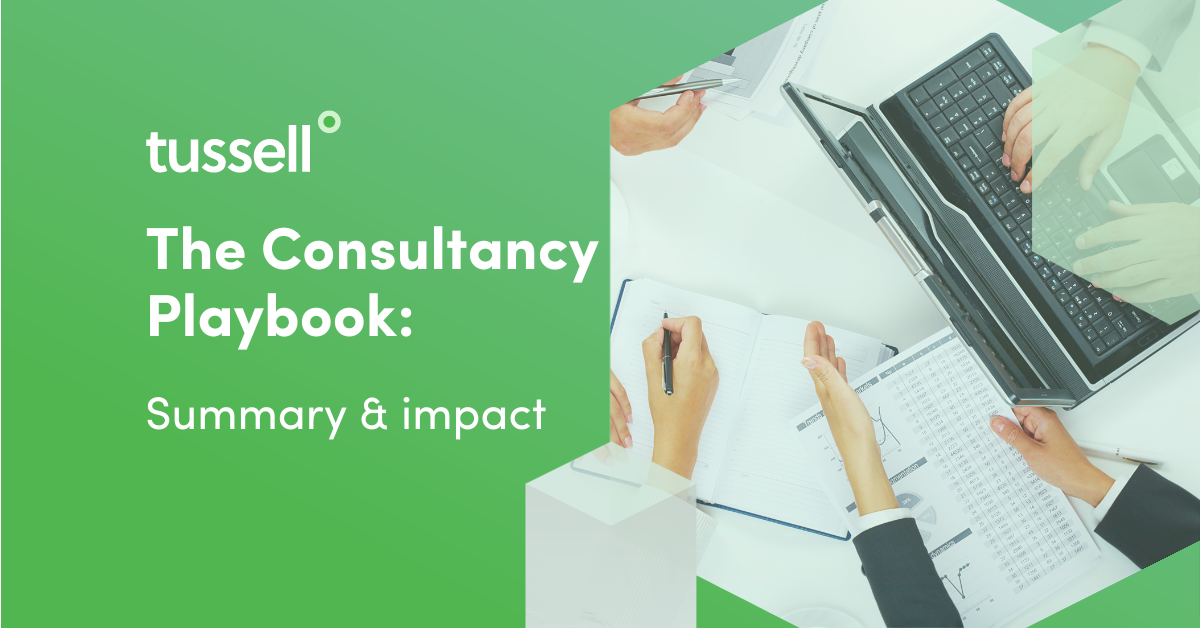In September 2022, the government published its updated Consultancy Playbook, which contains government guidance "on how to commission and engage with consultants more effectively, achieving better outcomes, better value for money and supporting Civil Service capability through the creation of knowledge and skills."
The public sector management consultancy market is huge - total direct spending with management consultancy suppliers was worth £2.6 billion in FY21-22. Between FY17-18 and FY21-22 the sector grew by 146% vs. the 60% growth in overall public procurement spending.
If you want to sell more to government in this market, it is critical that you understand the Playbook and are able to implement its guidance when preparing bids and planning your pipelines.
Skip ahead to read about:
What is the purpose of the Playbook & who is it for?
The UK government released an updated version of its Consultancy Playbook in September 2022 to ensure that contracting authorities work with consultants in the most effective way, delivering the best outcomes while becoming less reliant on external resources.
The updated Playbook focuses on prioritising knowledge transfer, engaging with small and medium-sized enterprises, and collaborative working. The government says it's committed to working with the consultancy market to achieve the highest quality results and to get the most value from their spend.
The Playbook's guidance is aimed at all contracting authorities, across the public sector.
Summary and Key Aims
The Consultancy Playbook is the government's guidance on how contracting authorities effectively hire and work with consultants in order to achieve better results, get more value for money, and support the development of skills and knowledge within the Civil Service.
The Playbook's core tenants of advice are that:
1️⃣ Consultancy services should fill internal skill gaps, but only when necessary
The Consultancy Playbook emphasises the importance of choosing the right consultants for specific needs and skill gaps that cannot be filled internally. While external consultants may be necessary for certain specialised skills, the Playbook argues that the Civil Service should focus on successful delivery and knowledge transfer to support internal skill growth. The government hopes that this approach result in cost-effective, high-quality projects and services for the public.
2️⃣ Consultancy services should be outcome-oriented
The Playbook also suggests that the process of procuring consultants should be collaborative, focused on outcomes, and open to innovation. Being focused on outcomes means that instead of specifying the specific tasks and inputs that a consultant should deliver, the focus should be on the desired outcome or result of the project.
It also suggests that a more outcome-based approach to procurement can lead to better value for money and more effective delivery of projects. Building on this, it also encourages the use of outcome-based contracting, which involves setting clear and measurable outcomes for the project and allowing the consultant to determine how best to achieve those outcomes.
3️⃣ Consultancy services must deliver value for money as a priority
Value for money should be a key consideration for government agencies when procuring consultancy services, and suppliers will need to demonstrate that they can deliver high-quality services at a competitive price. The Consultancy Playbook's aim for maximising value/value for money can have a significant impact on suppliers.
*
The majority of the advice and information most relevant to suppliers is within section 1 ("Right at the Start") of the Consultancy Playbook.
It should be noted that the Consultancy Playbook does not introduce any fresh policies on consultancy services. Instead, it provides valuable insights into the factors that contracting authorities should take into account and the criteria they should use while evaluating consultancy services.
What does the Playbook mean for consultancy suppliers in the public sector?
By providing buyers with a consistent set of guidance for how to procure consultancy-related services, the Playbook aims to provide a more even playing field for consultancy suppliers selling into the public sector.
We've identified 5 core bits of guidance that are likely to impact suppliers the most:
✅ Setting procurement up for success from the start
The Playbook puts great emphasis on the importance of setting up procurement processes for success.
This means having clear project outcomes, clear requirements from the consultancy provider, and clear engagement & understanding of the buyer for the task at hand.
These goals must also be clearly set out and broken down for the consultant. For example, if the project will take a longer amount of time, it may be necessary to have a more flexible contract that allows for tweaks along the way. It's also important to break down the project into smaller parts to ensure the consultant's time is used effectively and efficiently.
During this process, IR35 regulations (off-payroll working rules) must also be considered as usual. To comply with IR35, suppliers may need to demonstrate that they are operating as genuine contractors rather than employees of the client.
💬 An emphasis on pre-market engagement
The Playbook encourages contracting authorities to engage with the market pre-tender when going out for consultancy services.
This is especially good news for suppliers. Getting the opportunity to speak with buyers pre-tender allows you to better understand their needs, in turn allowing for more tailored, successful bids.
🤝 "Collaborative consultancy" procurement
The theory of "collaborative consultancy" in the Playbook may have mixed effects on suppliers in this market, creating both opportunities and challenges.
"Collaborative consultancy" emphasises the importance of consultants collaborating closely with clients, actively listening to their needs, and involving them in co-creating solutions to achieve meaningful and sustainable outcomes. This makes the relationship between the supplier and buyer stronger, building grounds for further work together in the future. Collaborative consultancy offers several benefits, including an enhanced understanding of the client's organisation and challenges, increased ownership and commitment from clients, the opportunity to leverage diverse perspectives for creative solutions, and the establishment of strong relationships between consultants and clients.
However, collaborative consultancy can be a time and resource-intensive activity, requiring significant investment in meetings, discussions and joint decision-making. Balancing diverse perspectives and reaching a consensus among stakeholders may be difficult. The success of collaborative consultancy relies on the readiness and engagement of clients, as their active participation and availability of resources are essential for achieving desired outcomes.
⚖️ An outcome-based approach
The emphasis on outcomes first will greatly impact how you both bid on and ultimately carry out contractual consultancy work.
Broadly, this approach requires you to focus on a project's ultimate aim and objective, rather than just completing a list of tasks. This should encourage suppliers to be more innovative, and adopt a more long-term approach to contractual work.
This approach emphasises the value and impact generated by suppliers rather than just their immediate outputs. As suppliers are encouraged to align their products/services to the desired outcome of the client, a deeper understanding of the client's needs, objectives and success criteria is needed.
In order to achieve this, suppliers need to go beyond fulfilling contractual obligations and actively contribute to delivering measurable value and achieving the desired outcomes - this means more time and effort from the supplier will be needed.
Outcome-based approaches require clear and measurable performance indicators tied to the desired outcomes. Suppliers need to demonstrate their ability to deliver results by tracking, measuring, and reporting on these performance indicators. This may involve implementing systems for data collection, analysis, and reporting to provide transparency and accountability.
Suppliers may need to be more agile and adaptable in an outcome-based approach. As the client's needs and priorities evolve, suppliers should be willing to adjust their approach, reallocate resources, or explore alternative solutions to ensure the desired outcomes are achieved. This requires a willingness to be proactive, flexible, and responsive to changing circumstances.
In the longer term, this outcome-based approach should hopefully lead to better relationships between clients and suppliers. As both parties work together to achieve desired outcomes, trust, collaboration, and mutual understanding deepen over time. Suppliers who consistently demonstrate their ability to deliver outcomes may have the opportunity for ongoing partnerships and contract renewals.
💷 Maxisiming value
Achieving true value for money is emphasised throughout the Playbook.
In order to achieve this, suppliers will need to demonstrate that they can deliver services that are cost-effective but also provide everything that contracting authorities are looking for.
Suppliers are encouraged to bring innovative ideas, approaches, and solutions to the table. They need to actively seek opportunities to improve processes, enhance efficiency, and drive innovation within their scope of work.
Alongside this, maximising value requires suppliers to consistently deliver high-quality products or services that meet or exceed the client's expectations. Suppliers must ensure that their deliverables are reliable, durable, and perform optimally. This may involve implementing quality control measures, adhering to industry standards, and continuously improving their processes and offerings.
The Playbook's emphasis on the importance of knowledge transfer and building internal capabilities within government agencies means that suppliers will need to focus on developing effective strategies for transferring knowledge and building the capacity of government agencies to address similar problems in the future.
Suppliers that embrace the idea of maximising value can gain a competitive advantage in the market. By differentiating themselves through their ability to consistently deliver exceptional value, suppliers can stand out from competitors. This can lead to increased market share, enhanced brand reputation, and improved business growth prospects.
What does the Playbook mean for SMEs in the public sector?
The Consultancy Playbook has specific implications and benefits for SME suppliers. It hopes to provide SME suppliers with valuable support, guidance, and growth opportunities.
Here are some of the important messages for SMEs:
💰 Increase in profitability
SMEs can increase their profitability by improving their operational efficiency using the ideas presented in the Playbook. Both the theories of collaborative procurement and maximising value would help SME suppliers to reduce costs, optimise their pricing strategies and identify new revenue streams. Alongside this, Consultants can identify areas of inefficiency within their SME's operations and suggest ways to optimise processes, reduce lead times, and improve productivity.
The Playbook also encourages SMEs to expand their market presence and customer base. By exploring untapped customer segments or geographic markets, SMEs can increase their customer base, diversify revenue streams, and ultimately drive profitability through new sales channels. Alongside this, by leveraging strategic partnerships, SMEs can expand their reach, reduce costs, and tap into new customer segments, thereby increasing profitability.
📄 Scape & scope lotting
Scope lotting in procurement involves dividing a complex project into smaller lots based on specific scopes of work or requirements. This approach promotes competition, allows for tailored evaluations, and facilitates the engagement of specialised suppliers for each lot.
Scope lotting provides SMEs with the opportunity to participate in procurement projects by bidding for specific lots that align with their expertise and capabilities, thus increasing their chances of winning contracts. By breaking down the projects into smaller lots, it reduces the entry barriers for SMEs. As a result, it allows them to compete on a more level playing field by bidding for smaller, more manageable contracts that align with their capacity and resources.
SMEs usually excel in niche or specific areas, for this reason, scope plotting is particularly useful to SMEs because it allows SMEs to focus on their strengths and bid for lots that align with their specialised products or services. This specialisation gives them a competitive advantage over larger, more diversified companies that may struggle to match the expertise and agility of SMEs in specific areas.
💪 'Enhanced competition'
'Enhanced competition' is a concept coined by the Consultancy Playbook that refers to the strategy of promoting and fostering a competitive environment among suppliers or consultants.
It involves creating conditions that encourage suppliers to compete for projects or engagements, leading to improved quality, better pricing, and increased value for clients. By fostering a competitive environment, clients benefit from better quality services, competitive pricing, and innovative solutions. It also encourages SME suppliers to differentiate themselves and continuously improve in order to remain a successful supplier in the consultancy market.
💻 New technologies & tools
New tools will be introduced for SMEs which will help them to improve their operations, including data analytics tools and CRM systems. The Playbook emphasises the need for SMEs to embrace new technologies such as AI and Cloud Computing in order to remain a competitive supplier within the market and keep up with the changing face of public sector business.
📝 Below-threshold bids
The Playbook encourages contracting authorities to consider the use of below-threshold tenders to encourage SMEs into their procurement processes.
Contracting authorities should consider utilising PPN 11/20 (reserving below-threshold procurement) allowing them to run a competition and limit bids to only SMEs and VCSEs or suppliers located in a specific geographic area. This could be a useful tool to support SMEs, social value, and levelling up priorities. SME suppliers should keep an eye out for these contracts.
Conclusion
The key message of the Consultancy Playbook is that consultancy suppliers in the public sector should focus on delivering value for money and providing high-quality services.
The Playbook also emphasises the importance of transparency and accountability, as well as the need to ensure that contracts are properly managed and monitored, whilst encouraging suppliers to be innovative and to use technology to improve efficiency and effectiveness. Alongside this, the Playbook encourages suppliers to build strong relationships with their clients and to ensure that they are delivering services in line with the client’s needs.
The Consultancy Playbook hopes to provide SME suppliers with the tools and knowledge they need to become more competitive, efficient, and profitable in their respective industries. But, it emphasises that SMEs must be proactive in adopting new technologies to stay competitive in the modern market.
Finally, the Playbook provides advice on how to develop a successful business model for public sector consultancies, including how to identify and capitalise on new opportunities in the market. By following the guidance in the Playbook, public sector consultancies can ensure their future growth and success.
Data from Tussell's market intelligence platform shows us that there are 1,770 consultancy-related contract awards that are due to expire in the next 24 months. With the total award value of these contracts totalling £4.76 billion, there is no better time to understand the public sector management consultancy market.
If you want to make inroads into the public sector consultancy market, you'll need hard data on your side to decide who to target, know who you'll be up against for opportunities, and what the best routes to market for your business are.
With Tussell, you can analyse public spend, contract awards, favoured frameworks and more, helping you make more informed decisions and strategies when selling to the public sector, at any time.
*
To find out more about the public sector consultancy market, check out our recent Management Consultancy Market Snapshot which you can download and read for free. It includes everything you need to know about the top suppliers, buyers and frameworks in the sector.
Tussell's market intelligence platform is already being used by consultancy suppliers to track new opportunities, dig into their target accounts, see who their competitors are working with, and understand which frameworks they should get onto to win more work.
Book a personalised demo with our team to see how Tussell can unlock public sector insights and opportunities for your business.




%20v1.png)












